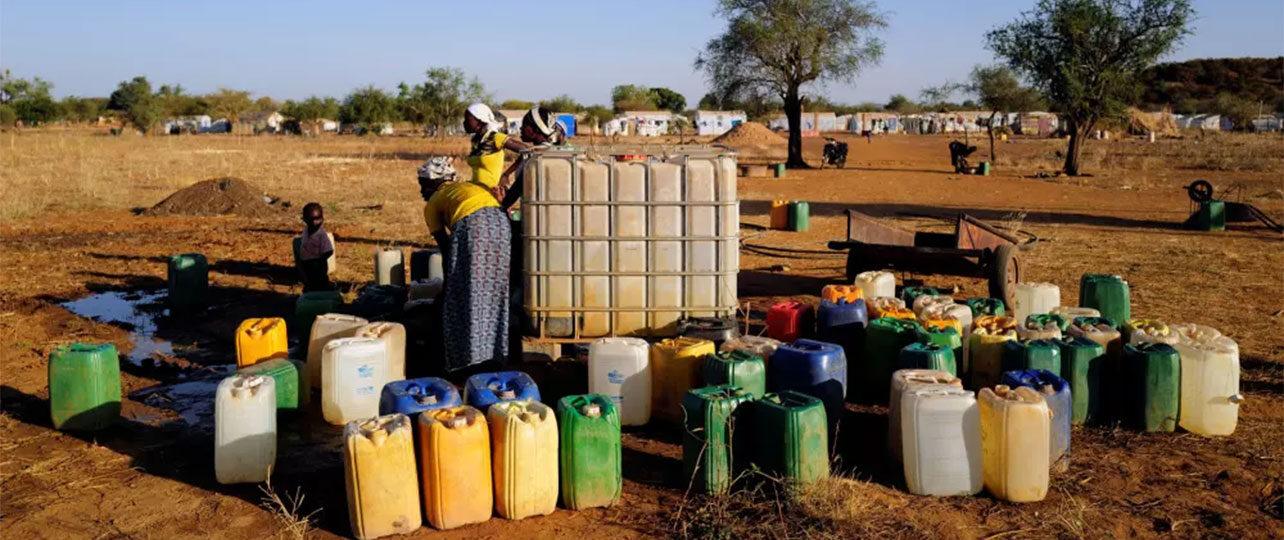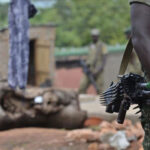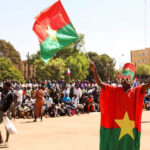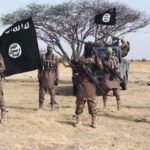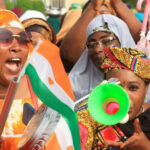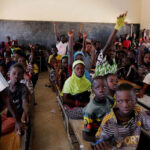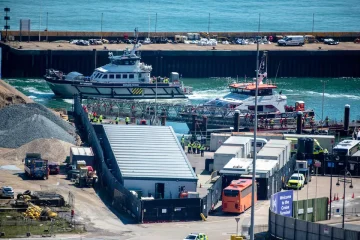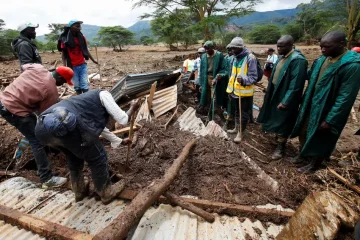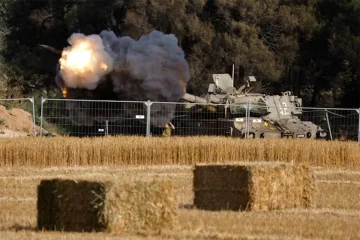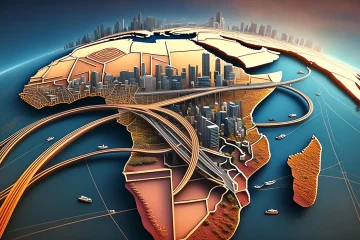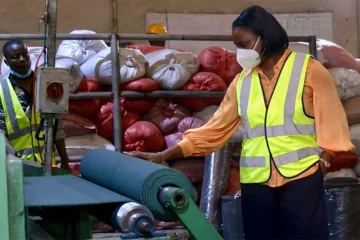AROUND a million people in Burkina Faso are living under suffocating blockades imposed by jihadist groups on dozens of towns and villages – a tool of war that is destroying local economies and leading to mass hunger and deaths from treatable diseases.
Insurgents have used siege tactics for several years against communities they accuse of supporting government forces, but the number of blockades has increased since a junta seized power from different military leaders late last year.
The new junta has ramped up military operations and enrolled tens of thousands of civilians into a nationwide anti-jihadist volunteer force. Jihadist groups – affiliated to al-Qaeda and the so-called Islamic State – are enforcing blockades as punishment.
“Our brothers and sisters, cousins and nephews, our elderly, they live in total poverty,” said a teacher who recently escaped the eastern town of Pama, which has been encircled by jihadists since last year.
The teacher said Pama had thrived economically in recent years, especially in its agricultural output, but “everything suddenly stopped” once the blockade was imposed. Now, basic goods like salt and soap are rare and pricey, they said.
The New Humanitarian spoke to four people living in blockaded towns in different parts of Burkina Faso over the past month and interviewed seven national and international aid workers from organisations that are trying to get aid to these hard-to-reach areas.
Residents of the blockaded places – all of whom requested anonymity due to the risk of reprisals – said their health services are collapsing; infrastructure, including water systems, are being attacked; and food is lacking because jihadists prevent their access to farm and pasture spaces on the outskirts of towns.
However, people said their communities have developed survival techniques, including urban farming, the pooling of resources through mutual aid networks, and leveraging support from families that can send money via mobile platforms.

Aid workers said they can access blockaded towns but usually only via high-cost UN helicopters. Distributions are infrequent, there aren’t enough aircraft, and jihadists sometimes threaten to punish communities for accepting relief, they added.
Military convoys periodically force their way through blockades to deliver commercial market supplies, and humanitarian aid, and to help people escape their towns. But these processions are also infrequent and are regularly attacked by jihadists.
A resident from the blockaded northern town of Djibo described being ambushed after escaping on a convoy in September. “There were many deaths during this attack,” the resident said, adding that their grandfather was killed in a similar ambush last year.
War crimes and famine risk
Burkina Faso has faced insurgencies by jihadist groups since 2016. The violence – which is also affecting neighbouring Mali and Niger – has displaced more than two million people, and led to back-to-back military coups last year.
The country’s current leader, army Captain Ibrahim Traoré, has won some local support for his aggressive military stance, and for speaking out against France, the former colonial ruler, which ended its military operations in Burkina Faso at the junta’s request.
Still, humanitarian needs and conflict fatalities have hit record highs as soldiers, volunteer fighters, and jihadists all carry out human rights abuses: 4.7 million out of a 22 million population now require assistance, an increase of over a million from 2022.
The situation is especially bad in the places that jihadists encircle, often through checkpoints and by scattering explosive devices. The tactic is used to restrict the movement of soldiers and volunteers and to punish localities supportive of the army.

Thirty-six towns across the country are now under siege, an increase from 25 earlier this year, according to an internal assessment by an international NGO that was shared with The New Humanitarian.
An aid worker with access to advanced satellite imagery told The New Humanitarian that around blockaded towns, “there is no agricultural activity, unless the land is located in the immediate vicinity to the town, maximum one kilometre away”.
The US-funded hunger monitor FEWS NET has warned of a risk of famine in some blockaded areas, while Amnesty International has said attacks on civilians and the destruction of livelihood systems in besieged towns constitute war crimes.
Under previous administrations, community leaders had received government clearance to speak with jihadists about alleviating sieges and other issues. However, Traoré’s military-focused administration has eschewed these dialogue efforts.
A 19-year-old student from Djibo said residents there were told that a previous dialogue initiative “was no longer on the agenda”. They said they didn’t know why discussions had been halted but believed giving up on the talks was a mistake.
Poisoned wells and profiteering merchants
Djibo is one of the towns worst affected by blockades, having faced the situation since early 2022. Some 300,000 people are currently living in the town, the vast majority of whom are internally displaced from other areas.
The student, who recently escaped to the capital, Ouagadougou, told The New Humanitarian that people in the town regularly “remain without food” for long periods of time while they wait for the arrival of aid or for military convoys carrying market supplies.
Profiteering merchants often bulk buy goods – already inflated due to supply-side constraints – when they do arrive on convoys, and then hoard them until the value has risen beyond what a lot of people can afford, the student said.
Access to water is also patchy, the student added. They said jihadists are sabotaging facilities belonging to the national water company in Djibo, and are poisoning wells within the town. As a result, many are drinking dirty water and developing illnesses.
“Most of the diseases that attack people, especially children, are caused by lack of vitamins and a healthy diet. Some people have large sores all over their bodies.”
Community leader in Kantchari
Meanwhile, the teacher in Pama said a siege that began there last year has impacted all aspects of life, bankrupting businesses, emptying markets, and leaving hospitals and pharmacies without vital supplies.
They said a lack of fuel means people have to walk around town rather than using motorbikes – the most common mode of transport – while cereal producers are using “archaic” mill stones to produce grain, rather than more modern grinding machines.
“Our parents die there because there is no care,” said the teacher, who left for Ouagadougou last year. If you get sick and the plane takes time… you end up dying. This is Pama’s life today.”
A community leader in Kantchari, an eastern town near the border with Niger, said families in their city often go several days without cooking a hot meal – a consumption deficit that has led to the spread of malnutrition-related diseases.
“Most of the diseases that attack people, especially children, are caused by lack of vitamins and a healthy diet,” said the community leader. “Some people have large sores all over their bodies.”
Urban farming and mutual aid: How communities survive sieges
To cope with the blockades – and insufficient support from aid agencies and the government – communities are increasingly supporting one another, according to the residents of besieged areas who spoke with The New Humanitarian.
“Mutual aid has developed a lot in the city since the blockade,” said the Djibo resident caught in the September ambush. “I saw people cooking and inviting their neighbours to share their dishes. We really see solidarity almost everywhere and in all areas.”
An array of other coping strategies has also been developed, according to the four affected residents and several humanitarian workers who have recently travelled to besieged localities.
For example, to avoid journeying into forested areas outside of town, people now often use coal instead of firewood, and send children rather than adults, believing they face less risk of attack.
Diets have also changed in blockaded towns, with people increasingly consuming forest products and wild fruits in lieu of harvested food. In some areas, foraged seeds once used for soap are now put in sauces as a replacement for peanuts.
Having less palatable food means people stock up on salt when they can. And with jihadists sabotaging the national water company, some people are digging wells outside their homes, or using old groundwater supplies previously used for livestock.
Blockaded communities have also shifted towards urban farming because they don’t have access to their main spaces outside of towns. Some people have large urban fields, though others are cultivating shared plots or smaller spaces around their homes.
The teacher from Pama said careful conversations are held on what crops can be grown in town. Beans, peanuts, and plants like cucumber and runner beans are permitted, but taller plants that jihadists can use to hide themselves are forbidden.
“There is never a shortage of adaptation strategies for populations in areas under blockade,” said the Pama teacher. “This is also what being human is: Faced with a situation, they go about adapting to the new situation that presents itself.”
Challenges for humanitarian groups
All four residents said aid groups have been a lifeline during the sieges. The Pama teacher said residents “depend” on aid, while the local leader in Kantchari said relief agencies are essential because the government is not offering enough support.
Still, aid distributions are infrequent – often arriving once every few months – and the supplies that are handed out tend to be insufficient, according to the four affected residents.
Accessing blockaded localities is difficult for aid groups because of the risk of attack by jihadists, said a national aid worker employed by a UN humanitarian agency. They asked not to be named citing the risk of reprisals from the government.
“Often jihadists tell the populations, ‘if we see another humanitarian with this person, or if they come to deliver food to you here again, you will face the consequences’”
National aid worker based in Ouagadougou
“I remember, in certain cases, we looked for transporters to whom we wanted to pay money to transport food for us, but we did not have any,” said the UN worker. “People are right, because life cannot be bought.”
UN cargo helicopters are available to dispatch relief items more safely to blockaded areas. Three aircraft are currently in operation, accessing nearly two dozen towns, according to an April rotation sheet.
Still, according to several national and international aid workers, the cost of running the aerial bridge is high, there aren’t enough flights, and the aircraft transport far fewer goods than trucks otherwise would.
Breaking the blockade by delivering aid can also put affected populations at risk, given that it undermines what the jihadists are trying to achieve, said an aid worker who works in Ouagadougou for a local NGO.
“Often [jihadists] tell the populations, ‘if we see another humanitarian with this person, or if they come to deliver food to you here again, you will face the consequences’,” the aid worker said.
All four affected people said they believed a long-term solution could only be achieved through dialogue between the government, local community leaders, and the jihadist combatants.
“It is clear that the solution is not to kill each other,” said the student from Djibo. “The government must do its best to talk with [the jihadists] with a view to reaching an agreement. Both sides need to stop fighting each other.”
Editor’s note: The name of the Burkinabé journalist is not being used due to concerns about their safety.
Maria Gerth-Niculescu reported from Dakar, Senegal. Edited by Philip Kleinfeld.
–––––
The New Humanitarian puts quality, independent journalism at the service of the millions of people affected by humanitarian crises around the world. Find out more at www.thenewhumanitarian.org.

